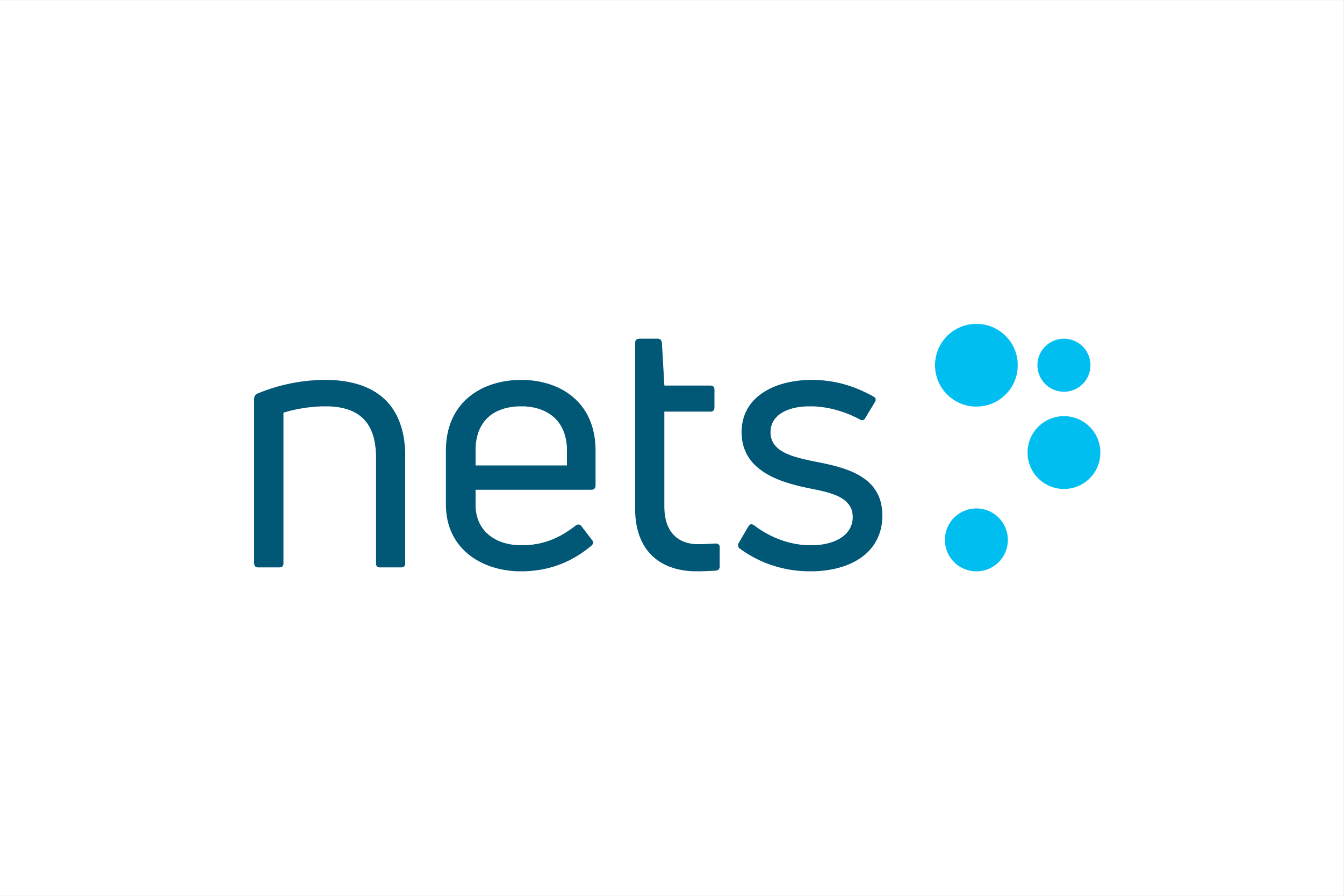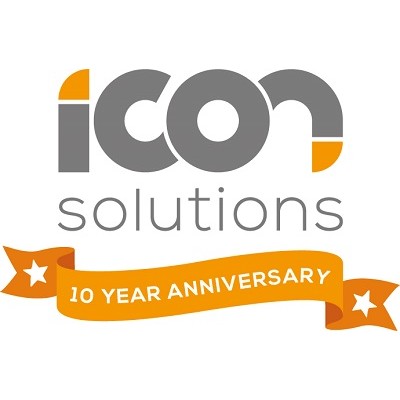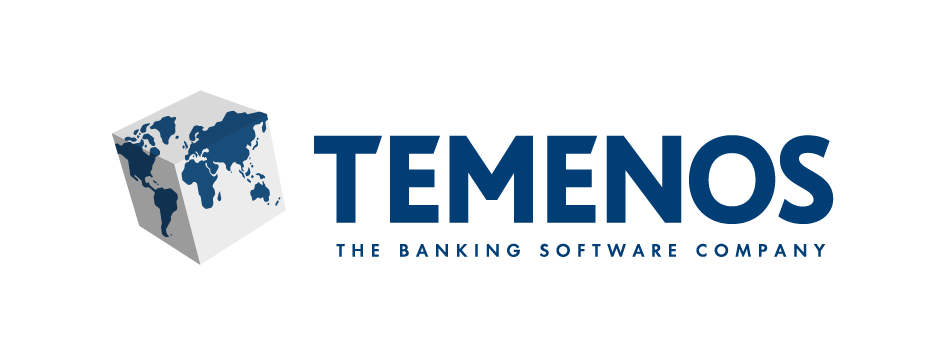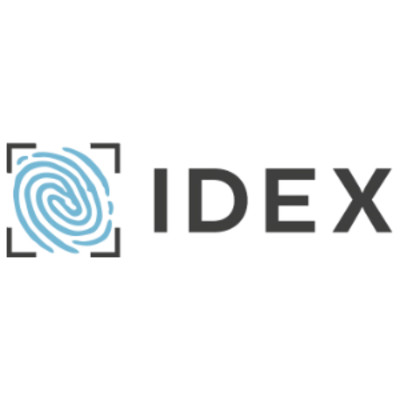Published
- 09:00 am

Last week at Finastra Universe Dubai, Finastra announced that Askari Bank, a leading commercial bank in Pakistan, has chosen its market leading trade finance solution, Fusion Trade Innovation, to digitalize its trade finance business. The solution will enhance the bank’s comprehensive digital trade capabilities via built-in workflow features and will improve services for its corporate and retail customers by providing a smart user interface. The solution is also expected to generate new revenue streams whilst keeping costs and transaction turnaround times down.
Abid Sattar, CEO and President at Askari Bank said, “As a bank that is focused on providing forward-thinking solutions to our customers, working with Finastra allows us to continue developing our digital suite of services and enable our customers to make faster transactions and receive greater value from their trade finance relationship with Askari Bank. We chose Fusion Trade Innovation for its ability to support our growth through powerful end-to-end automation of our trade finance business, its service agility and built-in SWIFT-compliance.”
Farrukh Iqbal Khan, Group Head, Operations and Trade Finance at Askari Bank, said, “Our growing customer portfolio in Pakistan requires a vibrant trade finance solution that facilitates more efficient trading through automation, reduced errors and streamlined processing. Working with Finastra means that we have access to a highly experienced team of consultants and are able to attract more clients at scale and deliver a competitive advantage to them. We look forward to growing this relationship with Finastra over time.”
Finastra’s trade finance offering will enable Askari Bank to meet increasing client demand for digital banking solutions, particularly among corporate customers. Askari Bank picked Finastra’s Fusion Trade Innovation to power its trade finance solution for its end-user experience, ability to support all trade products and capacity to integrate with downstream systems through open APIs. Askari Bank could also benefit in future from access to further innovation through Finastra’s platform for open innovation, FusionFabric.cloud.
Wissam Khoury, Senior Vice President and Managing Director, APAC and MEA at Finastra said, “Corporates are quickly catching up with retail customers and are expecting more from their bank, such as an improved user experience, speed and more innovation. The agreement with Askari Bank signals market readiness for large banks with complex trade finance and corporate banking operations, in locations such as Pakistan. Fusion Trade Innovation is unique in its ability to drive significant revenue growth for banks through enhanced customer service and access to further innovation. We are excited to support Askari Bank on this journey of digital preparedness and business growth.”
Finastra is well placed to support customers in this space, having recently been named a Leader in IDC MarketScape for end-to-end corporate banking solution providers.
Related News
- 06:00 am

European payments leader, Nets, today announces it is delivering issuer card processing and API services to The PCKT Money Corporation. The five year contract will enable PCKT Money Corporation to realise its growth ambitions in Europe.
PCKT Money helps children and adolescents to understand the value of money, and the meaning of spending, saving and investing, through an innovative app and debit card. The card comes in various designs to appeal to a young audience.
The PCKT Money Corporation is a truly multinational fintech, with subsidiaries and offices in Finland, Estonia and Armenia. Through its subsidiaries, PCKT Money also delivers a range of technology and consultancy services to corporate customers.
Nets is, among other services, delivering issuer processing and scheme connectivity to PCKT Money based on Nets’ REST API connectivity. Through this effective API solution, combined with 24/7 cardholder support services and high uptime, PCKT Money can deliver world class service to its customers. The agreement also includes a provision for expanding the services delivered during the five-year period.
Jaakko Rytsölä, CEO of PCKT Money Plc, says: “We are happy to be working with one of Europe’s leading payment service providers. The switch from our former processor took less time than expected, and connecting to Nets’ API setup turned out to be a real time saver. We would like to thank the Nets team for their commitment and professionalism.”
Henrik Anker Jørgensen, CEO of Nets Estonia AS & Head of Baltic region at Nets, adds: “We are delighted to welcome PCKT Money Corporation as a customer. We have intensified our focus on supporting fintechs, especially in the Baltic region. This, combined with Nets’ state-of-the-art API services, has grabbed the attention of fresh new players in the payment industry. We are excited to explore new opportunities with these companies while continuing to serve our traditional banking customers.”
Nets’ implementation support enabled PCKT Money corporation’s payment processing conversion to move rapidly, and the solution is already live.
Related News
- 06:00 am

equensWorldline, a subsidiary of Worldline, the European market leader in payments and transactional services industry, is proud to announce that the company has successfully supported several banks in obtaining exemption from the fall-back mechanism required under PSD2. These include Credit Europe Bank N.V., Banque de Neuflize OBC, Banque CPH and vdk Bank. The exemption, which saves the banks significant investment and resources for setting up a contingency solution, was granted as a result of their use of equensWorldline’s Digital Banking Platform.
Following the PSD2 deadlines of 14 March and 14 September, several European banks based in the Netherlands, Belgium and France have already been granted an exemption from the fall-back mechanism upon evidence of their capability to provide access to their infrastructure to Third Party Providers (TPP). This exemption means that they have the required APIs ready in accordance with the Regulatory Technical Standards (RTS) prescribed by the European Banking Authority (EBA) and corresponding National Competent Authorities (NCA).
Ulrich S. Dietze, Country Manager Germany and Belgium, Credit Europe Bank N.V. says: “Our close collaboration with equensWorldline has proved a significant move: Credit Europe Bank N.V. successfully applied for the exemption from the fall-back mechanism, thus avoiding a whole raft of operational and financial consequences. PSD2 is yet another reason for working with a payments technology partner that is shaping the implementation by actively participating in important European associations and working groups.”
Full support for the requirements of PSD2
With PSD2, banks offering online access to their customers’ payment accounts are obliged to open access to their infrastructure to Third Party Providers (TPPs). In addition to providing a sandbox for their API service, PSD2 also requires banks to set up a contingency mechanism (or fall-back solution) in case the dedicated API service becomes unavailable, or is not working properly. Setting up this fall-back mechanism can be a serious challenge, given the required additional investments and resources.
This burden could be removed by obtaining an exemption. Banks can be granted an exemption from setting up a fall-back mechanism by the National Competent Authority if their dedicated interface (API) meets specific criteria, as stated in the PSD2 regulation. These criteria refer to factors such as robustness, availability, performance, security and detailed documentation. In addition, the dedicated interface also has to meet certain design and testing standards and must have been widely used for at least three months.
equensWorldline supports banks with this exemption request, as well as the creation of testing facilities or a ‘sandbox’ environment, and documentation on the API’s in a very short timeframe. The company also provides the end-to-end dedicated interfaces, including consent management and TPP verification which comply with PSD2 regulations and enable third-party providers to access customer account information in a correct, reliable and secure manner.
Within the new context, payment service users are protected by the Strong Customer Authentication (SCA) requirements and must give their permission before their details are submitted or a payment is processed. Furthermore, equensWorldline has strong PSD2 expertise with a presence in established European PSD2 groups and thorough regulatory control to ensure the product is always up to date. equensWorldline is currently working with several other European banks to support them in obtaining exemption from the fall-back mechanism, thus providing them with significant savings in resources and investment.
Mark Hakkenberg, Board member and Chief Operating Officer, Banque de Neuflize OBC, says: “Due to our long-standing collaboration with equensWorldline we successfully implemented the PSD2 APIs and received the exemption from the fall-back mechanism. Being granted an exemption demonstrates the high level of quality and security of the solution provided by equensWorldline, which is a solid basis for innovation to explore further open banking capabilities.”
Michael Steinbach, CEO equensWorldline and managing director Financial Services at Worldline, adds: “Ever since the introduction of PSD2, equensWorldline has been fully committed to develop a high quality PSD2 compliancy solution. The fact that several of our bank clients gained an exemption from the fall-back mechanism clearly demonstrates our capability to support and unburden banks in their PSD2-related challenges.”
Related News
- 07:00 am

Jakarta-headquartered PT Bank Mandiri Tbk, the largest banking group in Indonesia in terms of assets, loans and deposits, has selected the Avaloq Banking Suite to run its USD14 billion AUM wealth management division. The mandate, which Avaloq won after a highly competitive tender process, further increases the Swiss fintech’s Asia-Pacific client base and comes after a number of high-profile regional client wins and expanded partnerships in 2019.
Bank Mandiri’s 2020 vision is to be both Indonesia’s and the wider ASEAN market’s most pre-eminent bank, with a continued, strong lead in the fast-growing affluent segment in Indonesia. Its wealth management division, which has around 50,000 clients overseen by 20 private banking relationship managers and in excess of 200 priority banking managers, is forecast to grow assets under management by 30% by the end of 2020.
Avaloq has been selected to help the bank capitalise on market opportunities and the need for enhanced, digital-led service capabilities. Bank Mandiri’s Wealth Management division currently depends on several systems to support areas such as mutual fund and securities processing as well as customer portfolio views. The Avaloq Banking Suite will allow the institution to bring all areas, including CRM, onto one platform, delivering powerful scale benefits and greater data analytics at better cost.
Avaloq has continued to expand in the Asia-Pacific region, winning new clients and expanding existing relationships as all financial institutions look to take advantage of the powerful, competitive benefits that digital processes and cloud-based business models can deliver. Avaloq’s regional clients include DBS Bank, Maybank and Kasikorn Bank in South East Asia as well as Agricultural Bank of China, China Industrial Bank and China CITIC Bank International in North Asia.
Hery Gunardi, Managing Director for Business and Network at PT Bank Mandiri Tbk, said: “The Avaloq Banking Suite greatly impressed us with its powerful capabilities and a clear ability to meet our complex needs in the key wealth management segment. This is a fundamental part of our wider growth strategy and it is, therefore, very important that we work with best-of-breed partners. The Indonesian banking market is undergoing profound growth and we are very well positioned to benefit from this opportunity.”
Pascal Foehn, Avaloq Executive Board Sponsor for Asia and Avaloq Group COO, said: “We are delighted to have won the very competitive, highly prestigious tender to help Bank Mandiri consolidate and enhance its digital infrastructure, and meet its customer-focused ambitions in the wealth management segment. Allowing institutions to radically change how they manage and deliver product and service offerings across different segments and different business lines is a core benefit of the Avaloq Banking Suite. We believe Avaloq offers one of the best wealth management platforms in the market and we look forward to working further with new and existing financial services groups globally as they embrace the hi-tech business environment.”
Related News
- 08:00 am

Related News
- 02:00 am

Icon Solutions, the leading provider of technology solutions and payments expertise, today revealed that only 9% of the world’s top tier banks are effectively monetising payments data. The findings from Aite Group’s report “The Payments Transformation Race: Criteria for Success”, commissioned by Icon Solutions, also revealed that 82% of banks continue to rely on a transaction based revenue model, despite nearly two thirds of respondents (65%) reporting that payment services are operating close to (or below) profitability.
Transaction-led models are becoming unprofitable
Based on a global survey of senior executives at the world’s top-tier banks, the report reveals that despite high costs, low margins and increasingly commoditised services, banks continue to rely on transaction-based revenue models. This model is based on transaction fees (100%), subscriptions (60%) and account fees (14%), which have historically been the key revenue driver for banks.
However, this model has become unprofitable due to the cost of implementing new payments rails such as Real Time Payments (RTP), underlying infrastructure costs (hardware and software), and the need to reduce transaction fees in response to increased competition. In addition, as Open Banking drives players towards a “platform-based” business model, the ability to partner and collaboratively build new business services quickly becomes an imperative that is not cost sustainable today. According to the report these evolving requirements cannot, and will not, be met by existing transaction-led revenue models.
To offset the fall in payment profitability, the report calls for banks to use payments data to develop enhanced business services based on data-analytics that will open up new revenue streams and increases customer “stickiness”.
“We’ve reached a tipping point,” said Erika Baumann, Senior Research Analyst, Wholesale Banking & Payments at Aite Group. “Real-time payments data has transformative potential for financial institutions facing an existential crisis precipitated by the rise and threat of ‘Big Tech’ and fintech providers. To date, due to compliance and data governance issues, banks have been unable to harness this data. Open Banking changes that. Banks now have a license to capitalise on these unique and powerful data sets.”
“However, the equivalence inherent in Open Banking means that if financial institutions don’t put available data to work soon, one of their competitors certainly will”, concluded Baumann.
Monetise payments data to unlock new revenues
The report highlights the potential for banks to leverage data-driven revenue models that can monetise rich payments data through the delivery of new services and capabilities. These offerings range from enhanced account and transaction information to potentially pre-integrated into ERP, treasury management, and accounting systems.
For 9% of the world top tier banks, this ideology and revenue model isn’t new. BBVA’s ‘PayStats’ offering provides anonymised and aggregated statistical data from millions of transactions performed with BBVA cards and any other cards in BBVA POS terminals, creating a virtual map comprised of consumers' habits, demographics and origins – for other companies to purchase. Square provide a similar capability to their merchant customers.
However, most banks are struggling to change revenue models. This is due to three factors:
- Short-termism: Monetising payments data is a less important driver for change (18%) when compared to RTP (77%). In the US, existing revenue streams from payment transactions mean that banks are reluctant to impact what is still perceived as a ‘cash cow’.
- Complacency: ‘If it’s not broken, don’t fix it’ attitudes held by the banks. This is dangerous as the tipping point can come very suddenly – just like the “Kodak moment” - and fast, leaving too little time to react.
- Guidance: Many other banks are aware that they need to use payment data and alter their revenue model, but simply do not know how to transition.
“Merely collecting data is not enough; mining and extracting value from this data will be a decisive differentiating factor for banks and other players looking to compete and take their customer propositions to the next level,” said Simon Wilson, Director of Payments Solutions at Icon Solutions. “Beyond this, by capitalising on the data they have, banks will also be able to offer services like auto saving to retail customers and improving the ‘procure to pay’ process for corporates – from signing the contract to being ready for payment, tying together all the interactions points on the journey could be crucial.”
Wilson continued, “For banks, data - and payments in particular - should be at the epicentre of their strategies to unlock new revenues, better serve customers and better compete with data-centric rivals.”
Related News
- 04:00 am

Nium, the recently-rebranded (formerly, InstaReM) digital cross-border payments platform for consumers, enterprises and financial institutions, will now power cross-border payments for Frente Corretora de Câmbio, a leading foreign exchange broker in Brazil - known for its personalized and high-quality experience in financial and exchange advice. This is a significant move for Nium in its expansion plans into the Latin America.
Announcing the partnership, Prajit Nanu, co-founder and CEO of Nium said, “We are pleased to partner with Brazil’s Frente Corretora de Câmbio to power their cross-border money transfers. Brazil is an important market for Nium, and with Frente partnership, we are looking to expand our presence in Latin America. With Nium’s fast, secure and cost-efficient cross-border digital money transfer platform, customers of Frente will be able to realize quicker remittances, while being more confident about delivery times and payout amounts.”
To start with, Nium will conduct outbound money transfers to the United States for Frente’s clients and will extend its services to other countries including Japan, Australia, and Canada soon. Initially, the Nium-Frente partnership will serve retail customers, and the service will be extended to the corporate and SME customers in the near future.
Mr Ricardo Baraçal, Partner of Frente said, “This is a significant partnership for Frente, as we accelerate our pace of growth. Retail remittances is a growing market with overall outward remittancecs from Brazil having crossed US$ 2 billion. We are experiencing an increasing demand from our customers for cross-border payments services, especially to the countries like Japan, China, United States and in Europe, where Nium has strong presence. We are confident that the Nium’s capabilities will strengthen our remittance platform in serving our clients.”
Founded in 2017, the 2-year old Frente already ranks 20th biggest currency brokerage in Brazil and aims to reach the fifth place by the end of 2020. Frente offers its currency exchange via correspondents and has a 250-strong network of exchange correspondents. Frente offers remittances service on Ripple-powered Simple, which is not only its own remittance service, but also a white label platform for its partners, who can use their contacts to grow their business. Frente’s Simple platform gives them the agility, fair price and safety. With growing interest in the Simple platform, Frente has been closing deals with large players in Brazil.
Related News
- 08:00 am

Temenos (SIX: TEMN), the banking software company, today announced that Citi has extended its existing contract for Temenos Multifonds Global Accounting to drive operational excellence, reduce costs and deliver digital customer experiences for its global fund services business. Temenos’ platform and integrated operating model delivers localized accounting and reporting to underpin the management of Net Asset Value (NAV) production.
Citi Equities and Securities Services, a long-standing partner of Temenos for more than a decade, provides an end-to-end service proposition for asset managers in more than 80 countries across the globe. Temenos Multifonds Global Accounting product provides an agile and flexible global platform on which Citi can expand its business and deliver differentiated services to customers.
Max Chuard, CEO, Temenos, said: “We are proud to support Citi’s global fund services business growth. The fund industry is an ever-changing environment, defined by evolving regulatory requirements, expense pressures and sophisticated client demands. For businesses to thrive in such a landscape, we believe investing in innovative and flexible modern software is key. Temenos Fund Administration products have the hallmark of excellence, delivering the cost and operational efficiencies to enable businesses to grow exponentially while also future-proofing their operations.”
Temenos has a 20-year track recording of providing class-leading fund administration software. Temenos Fund Administration products support $7 trillion assets and more than 30,000 funds worldwide.
Related News
- 04:00 am

As stories of banking data breaches continue to hit the headlines, consumers are increasingly sceptical about the security of their online bank accounts. Now, new research by IDEX Biometrics ASA reveals that those in Generation Z (born after 1995) are particularly concerned by banking fraud.
According to our report, nearly eight-in-ten (79%) of those in Generation Z think banks should do more to protect their customers from fraud. The youngest wave of consumers expect this level of security even more strongly, with 95% of 16-17-year olds agreeing banks should step up fraud protection for their customers.
For those in Generation Z, banking in the digital age isn’t just a convenience, but also a source of risk. In fact, more than half (52%) of our respondents are worried about someone stealing their identity. Worryingly, young shoppers also aren’t confident in the ability of banks to deal with cases of fraud. Only half (54%) of respondents are confident that their bank would refund them any losses if someone fraudulently accessed their bank account and stole any amount of money.
A lack of trust in current banking security is supported by the experience of Michael, a 19-year-old from London, interviewed at a focus group into payment security held by IDEX Biometrics ASA: ‘I had £50 disappear from my account once, without me knowing,” said Michael. “So I feel using chip and PIN cards are sketchy, because people can make a clone of your card,” he continued.
To reduce their security concerns, Generation Z wants to see banks adopting new technology that will offer better protection against the risk of card and online fraud. Notably, three-in-five (62%) think banks should offer biometric payment cards to help reduce levels of payment fraud.
In fact, more than three-in-five (62%) Generation Z consumers think all banks should offer biometric payment cards to help reduce fraud, while nearly half (46%) would choose a bank that offered biometric payment cards over one that didn’t.
The thoughts of Periklis, a 24-year-old from London at the focus group reflect this view on biometric payment cards: “Biometric fingerprint cards look like they offer added protection, but it’s not complicated to use,” commented Periklis. “I think it’s a nice security feature and convenient for high purchases above the £30 contactless limit.”
Maybe unexpectedly, young shoppers are willing to pay for additional convenient payment security. More than two-in-five of those in Generation Z (43%) would expect to pay for a biometric payment card, while a third (33%) would be willing to pay between £3-£5 per month for a debit or credit card with fingerprint protection rather than a standard one.
“There is a clear emphasis on banking and payment security among Generation Z. Younger shoppers already understand the importance of protecting their bank accounts and cards, and they’re excited by a future that uses biometric technology to achieve this,” comments David Orme, SVP, IDEX Biometrics ASA.
“Generation Z are familiar with fingerprint authentication in smartphones and payment apps and understand the level of security they provide. Because of this, adopting biometric fingerprint payment cards is a small but crucial step to protect the next wave of consumers from payment fraud, without inconveniencing their lives,” added Orme.
Related News
- 06:00 am

AxiomSL, the industry’s leading provider of regulatory reporting and risk management solutions today announced the appointment of Claudia Thurner as EMEA general manager.
An experienced financial technology leader, Ms. Thurner has extensive expertise in client relationship management and solution and service delivery. She joins AxiomSL from SmartStream Technologies where she led European and Latin American Sales and Global Strategic Accounts. Previously, she was at Thomson Reuters based in Europe, Asia, and the US where she specialized in risk management business and product development.
“We are thrilled to welcome Claudia to AxiomSL during this important expansion period,” said Alex Tsigutkin, Founder and CEO of AxiomSL. “Her proven ability to drive results and her passion for excellence and client success will enable Claudia to lead AxiomSL EMEA into the future. I’m excited to work with Claudia as she builds on our momentum and market leadership.”
“And, as our clients take us on a global journey to address their regulatory and risk management needs across multiple jurisdictions and regulators, Ed Royan has assumed a new role leading global products. These key changes to our executive team will accelerate AxiomSL’s growth in EMEA and globally,” added Tsigutkin.
“Claudia arrives at an auspicious moment to lead AxiomSL into the next phase of advancement in EMEA and I am looking forward to collaborating with her,” said Ed Royan, AxiomSL’s Head of Global Products. “I am eager to further develop excellent global products that enable clients in EMEA and globally to meet changing, complex risk management and regulatory reporting requirements,” Royan added.
“I am delighted to join a vibrant, growing organization that engenders such high satisfaction from its clients,” Thurner commented. “It is exciting to have the opportunity to take our EMEA presence to the next level and I am looking forward to working with the team to deepen and broaden relationships with leading organizations across the region. AxiomSL’s innovative, transparent core technology and range of risk and regulatory solutions are impressive. These capabilities are critical to financial institutions’ success, especially now when they face constant change and uncertainty,” Thurner added.
Ms. Thurner holds an executive M.B.A. from Columbia Business School and London Business School and is a CFA® charterholder. She is based at AxiomSL’s London office.









